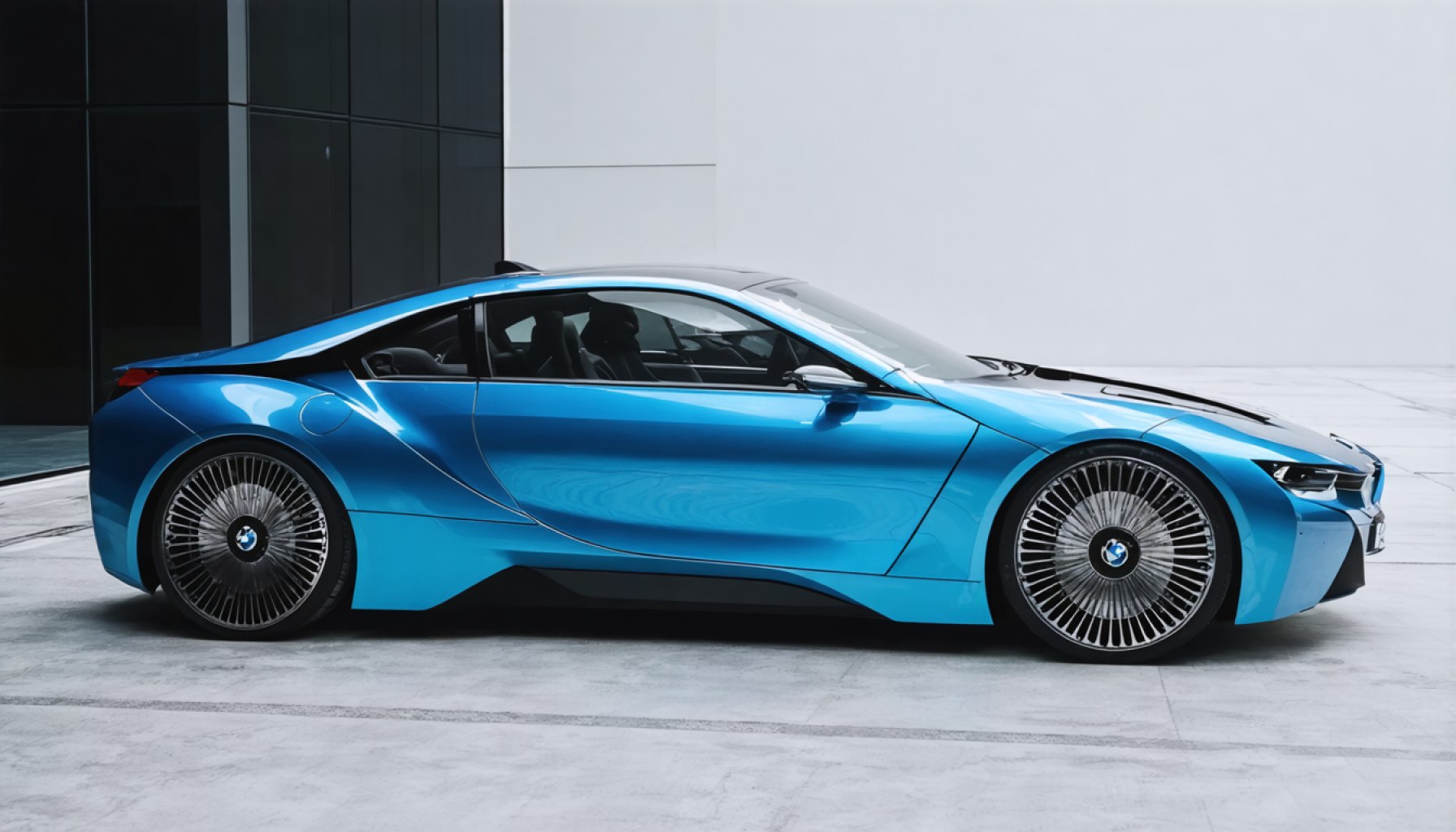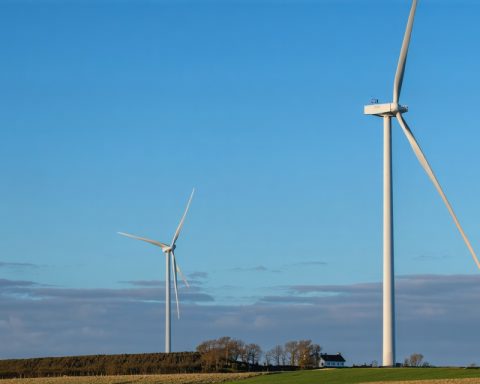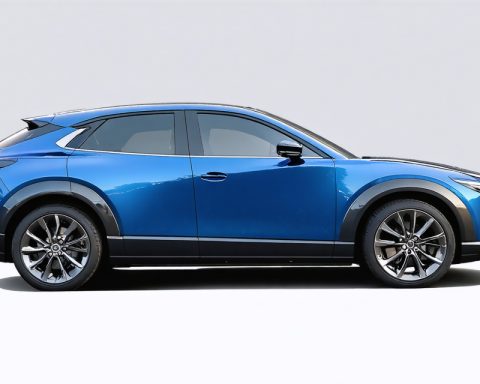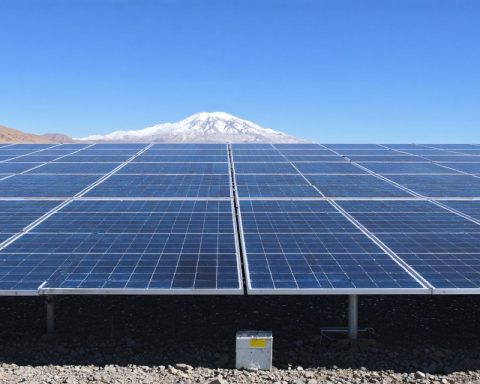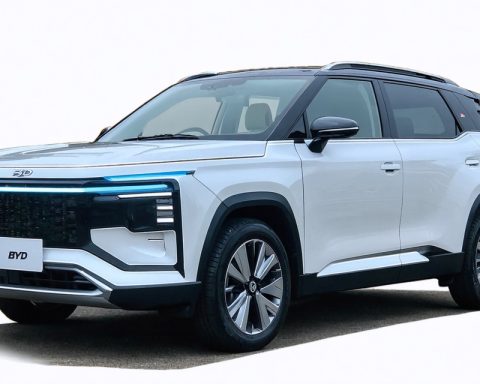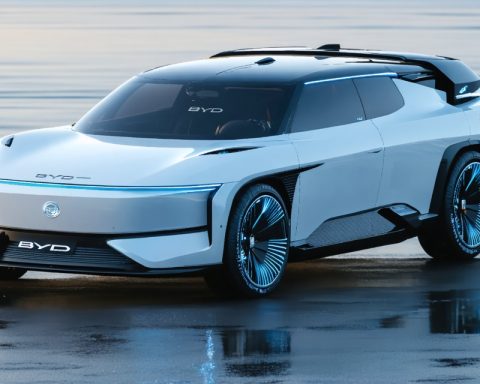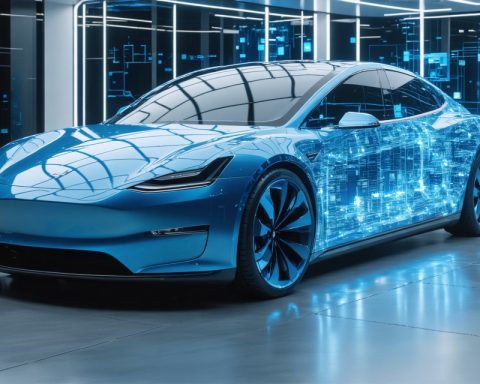- BMW targets a hydrogen-powered future with plans to debut its first hydrogen car by 2028.
- Collaboration with Toyota advances BMW’s fuel cell technology, emphasizing zero emissions.
- BMW tests hydrogen-powered Iveco S-Way trucks for sustainable freight transport in Europe.
- The H2Haul Project, funded by the Clean Hydrogen Partnership, aims to expand hydrogen truck fleets.
- BMW’s Leipzig plant utilizes hydrogen for over 200 factory vehicles, underlining early adoption.
- The proposed X5 hydrogen variant reflects BMW’s strategy of diversified powertrains.
Imagine the hum of a sleek BMW, but the engine isn’t reliant on gasoline. Instead, it’s propelled by the whisper of hydrogen—a testament to innovation and sustainability. The iconic German automaker is navigating toward a hydrogen-fueled future, joining an elite circle committed to revolutionizing travel.
BMW’s venture into hydrogen power isn’t just a brainstorm in the design room. With a roadmap aimed at debuting its first hydrogen-powered car by 2028, BMW is accelerating the global race for cleaner vehicles. Partnering with Toyota—the forerunner in fuel cell technology—BMW is honing a new generation of engines that promise both power and zero emissions.
But their ambitions go beyond cars. On the quiet roads between Leipzig and Nuremberg, two hydrogen-powered Iveco S-Way trucks tackle daily test drives, refueled at swift stations that shoot hydrogen directly into their tanks. These trials signify only the beginning, with the H2Haul Project set to launch a fleet of hydrogen trucks across Europe, fueled by Clean Hydrogen Partnership funds. Each mile covered in these trials sketches a clearer blueprint for a new era of freight transport defined by sustainability.
BMW’s Leipzig plant tells its own success story. It was among the early adopters of hydrogen within internal operations, relying on five hydrogen stations to fuel over 200 factory vehicles since 2013. This showcases BMW’s strategic foresight and commitment to this burgeoning technology.
The integration of hydrogen power in BMW’s lineup—like the proposed X5 hydrogen variant—heralds a versatile future. By diversifying their models with gasoline, hybrids, electric, and now, hydrogen options, BMW offers a larger question to the world: is hydrogen merely an alternative, or the inevitable future of mobility?
The Future of Driving: BMW’s Bold Hydrogen-Powered Vision
How-To Steps & Life Hacks for Hydrogen Vehicles
Hydrogen vehicles operate differently than traditional internal combustion or electric vehicles. If you’re considering making the switch or are just curious, here are the typical steps involved in using a hydrogen vehicle:
1. Refueling a Hydrogen Car: Similar to fueling a gasoline vehicle, pull up to a hydrogen pump, connect the nozzle, and fill the tank within a few minutes. The difference? It’s a cleaner and more futuristic experience.
2. Maintaining a Hydrogen Vehicle: Regular maintenance is simpler than for gasoline cars since there are fewer moving parts, no oil changes, and fewer components overall.
3. Finding Hydrogen Fuel Stations: Use apps or websites dedicated to locating hydrogen refueling stations. As of now, infrastructure is a work in progress, primarily concentrated in countries like Japan, Germany, and California in the U.S.
Real-World Use Cases
BMW, together with Toyota, is pushing the boundaries of hydrogen use not just in passenger cars but also in commercial freight. The deployment of hydrogen-powered trucks in the H2Haul project shows hydrogen’s potential in reducing emissions in logistics.
Market Forecasts & Industry Trends
The hydrogen market is poised for growth as more automakers join the hydrogen wave. According to a report by Allied Market Research, the global hydrogen fuel cell vehicle market size was valued at $651.9 million in 2020, and is projected to reach $42 billion by 2030, growing at a CAGR of 66.9%.
Reviews & Comparisons
Hydrogen vs. Electric Vehicles:
– Pros of Hydrogen:
– Quicker refueling times (approx. 3-5 minutes)
– Greater range in some cases
– Reduction of reliance on electric grid
– Cons of Hydrogen:
– Limited refueling infrastructure
– Currently more expensive to produce
Controversies & Limitations
While hydrogen offers notable advantages, critics point to the high cost of green hydrogen production and distribution. Some environmental experts emphasize the need for renewable energy sources in hydrogen production to ensure true sustainability.
Features, Specs & Pricing
While specific features of the upcoming BMW hydrogen vehicles are yet to be detailed, expect luxury-grade interior specs consistent with BMW’s existing lineup, focusing on sustainability.
Security & Sustainability
Hydrogen is a safe fuel under the right conditions, with ongoing research focusing on secure tank and infrastructure design. Sustainability depends heavily on producing hydrogen from renewable sources like solar and wind power.
Insights & Predictions
Experts anticipate that advancing technology and increasing environmental consciousness will gradually tilt the market in favor of hydrogen, potentially achieving parity with electric vehicles by 2040.
Tutorials & Compatibility
As hydrogen vehicles become more common, manufacturers and third-party platforms will likely provide video tutorials and guides to help new users adapt to hydrogen technology.
Pros & Cons Overview
– Pros: Fast refueling, lower environmental impact, potential for long range
– Cons: Limited infrastructure, cost of fuel and production, technology still evolving
Actionable Recommendations & Quick Tips
1. Stay Informed: Follow updates on hydrogen infrastructure development in your region to assess feasibility.
2. Consider Hybrid Solutions: If you’re not ready to go fully hydrogen, hybrid vehicles or plug-in hybrids can offer a middle ground.
3. Test Drive: Experience the unique driving dynamics of a hydrogen vehicle by visiting dealerships that offer test drives.
For more insights on BMW’s innovations and future plans, visit BMW.
